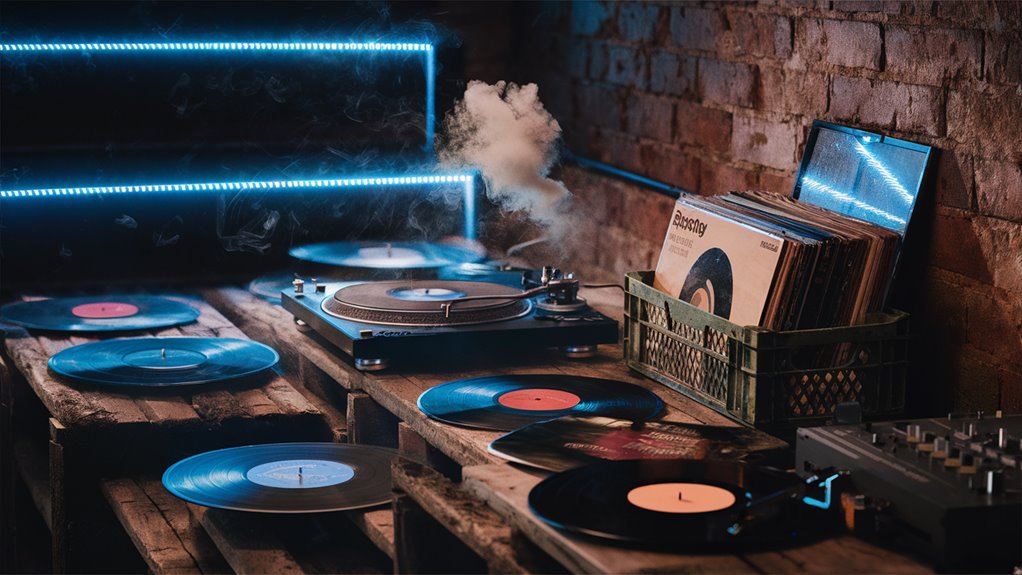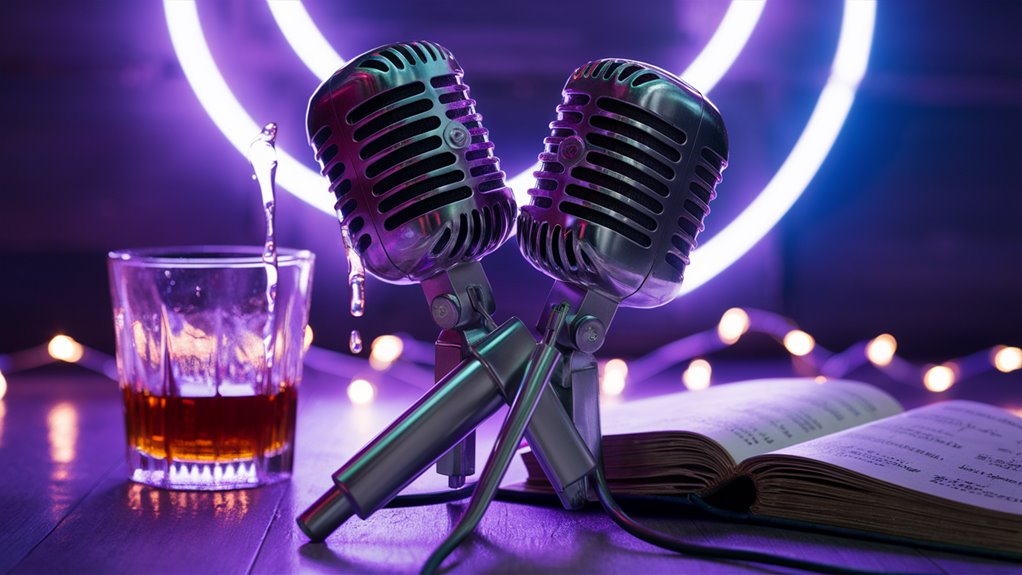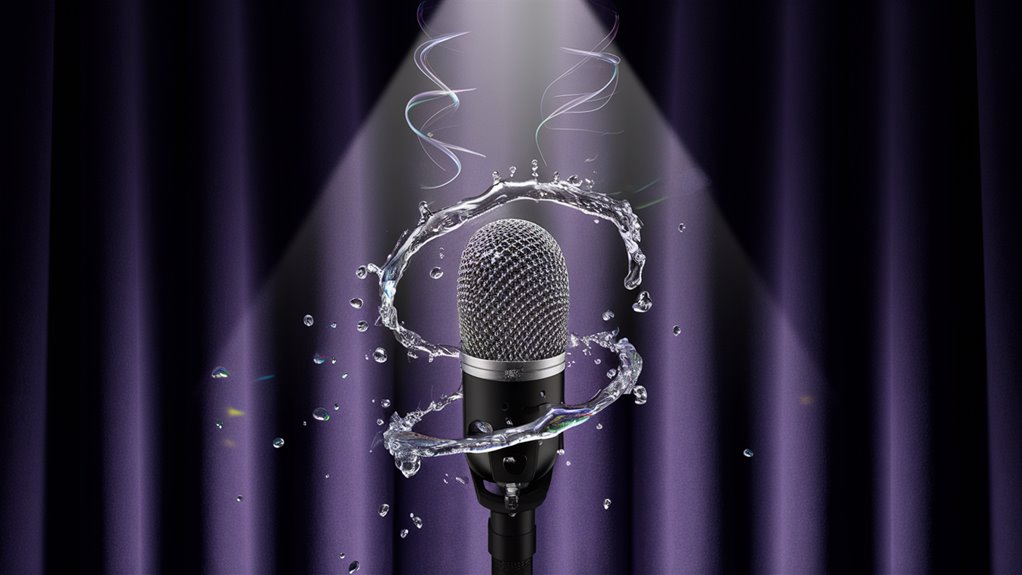How to Deal with Music Rights for Karaoke
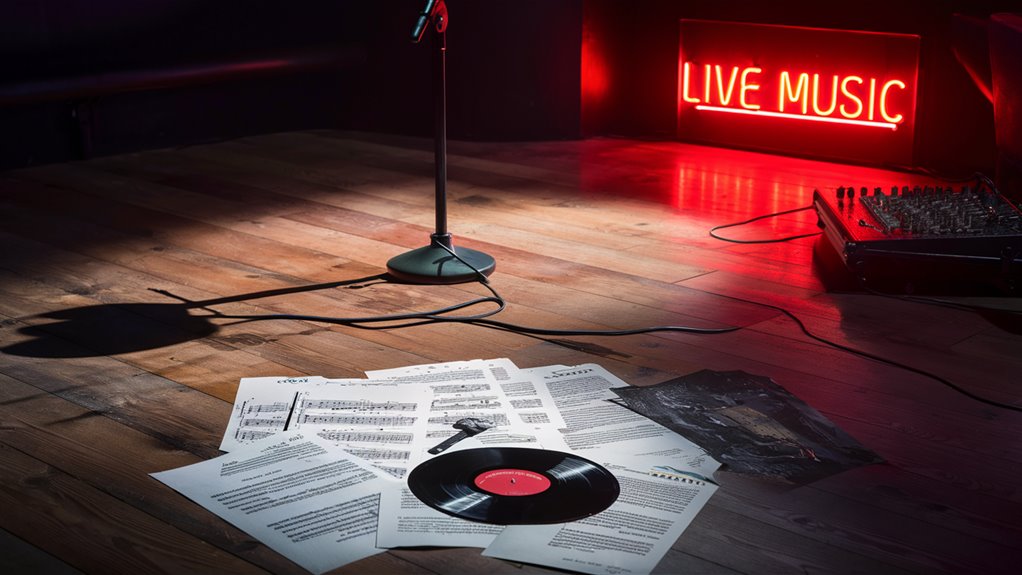
Key Rights To Get
If you run a karaoke place, you need some rights. Synchronization rights mix words and music, while public performance licenses must be got from groups like ASCAP, BMI, and SESAC. These let you play songs out loud safely. A display license is needed too. It shows words on a screen.
Rules on Showing Words
There are clear rules on how to show words:
- Text must be big enough to see well
- Words must stand out against the back
- Give captions for those who need them
Keep Track and Stay Safe
Keeping good records is key. Track what rights you have to avoid big fines, up to $150,000 for each time you mess up.
Do These Things Often
- Check your licenses a lot
- Keep copies of all your rights
- Corporate Event
- Use systems to track everything
- Check your own work often
- Write down every time songs are played
Know and follow these rules to run a karaoke place right.
Guide to Music Copyright
Music Rights Layers
Songs have two main parts. The first is the words and tunes; the second is the sound. Publishers look after the song, while record labels care for the sound.
When Copyright Begins
It starts when a song is made. For works made after 1978, it lasts the creator’s life plus 70 years. Rights include:
- Making copies
- Giving out
- Playing in public
- Changing for new uses
Karaoke Done Right
Commercial karaoke needs many legal rights:
- Rights to mix music and words
- Public playing rights
- Licenses for making karaoke tracks
You also need the right permissions for the song’s setup.
Must Have Karaoke Rights Guide for Business Owners
Main Rights Needed
Running a karaoke place by the rules means getting key music and show rights. Knowing basic karaoke rights helps you operate right.
Main Rights Parts
The Synchronization License is main, letting you put together lyrics and tunes, avoiding trouble. Public Performance Licensing from groups like ASCAP, BMI, and SESAC is needed to play copyrighted songs out loud, making sure everyone gets paid right.
More Rights Required
A Display License is key to show song words, covering all that you see. Mechanical Licenses are needed to make copies of karaoke tracks, and Master Use Licenses to use the original song in karaoke forms.
All Rights in One Go
Some karaoke services offer full rights in one package. Check these well to make sure you’re covered.
Think About These
- What your place needs
- What music is included
- How far the rights go
- Rights for showing on screens
- Recording and using rights
Groups That Handle Music Rights for Karaoke Places
How These Groups Help
Performance Rights Organizations (PROs) sort out complex music rights between copyright owners and karaoke spots. The big three in the US – ASCAP, BMI, and SESAC – take fees for playing copyrighted works out loud.
Rights You Must Have
General licenses from PROs are key for karaoke places, covering main music rights, but there are limits:
- Rights to mix music and words
- Rights for music making
- Sound recording rights
What Fees Depend On
PROs set license fees based on things like:
- How big your place is
- How often you have shows
- If you charge entry
- How much you make from music
Keep Track and Check Often
Karaoke spots must keep full records of:
- When events are
- How many come in
- What songs are used
- Money details
These records help during PRO audits and make sure songwriters and publishers get paid right.
Each PRO has its own list of songs, so you might need rights from several to cover all the songs you want.
Staying Legal with Music Shows in Public
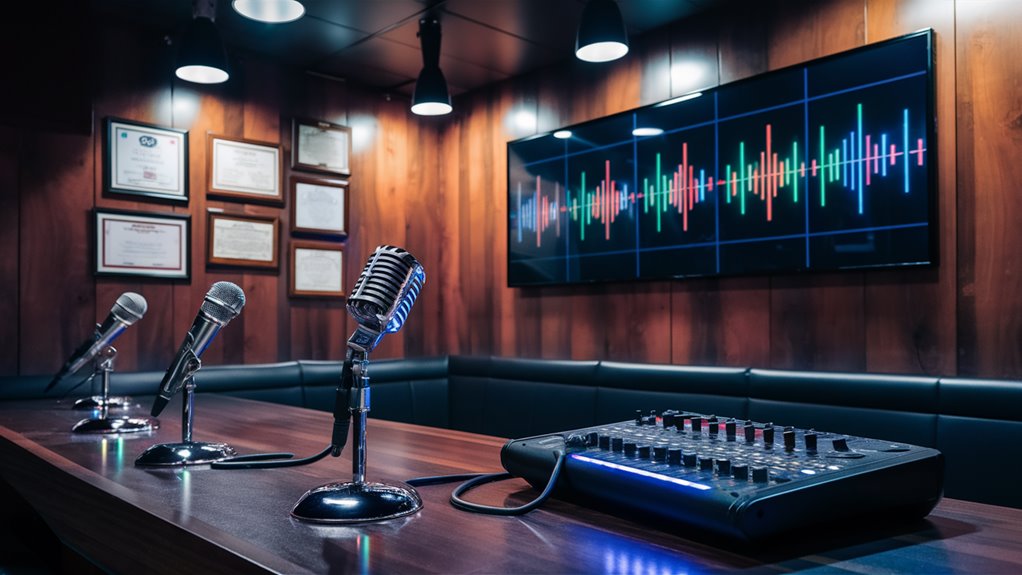
Main Rights for Law
Following public performance rules is key to run a karaoke place legally, keeping to US copyright rules and state music laws.
Places need several types of licenses, including mechanical rights and sync rights for parts of the music.
Rights You Need
From Rights Groups
General performance licenses from main PROs are a must:
- ASCAP
- BMI
- SESAC
Just for Karaoke
Places need the right karaoke sync rights from groups that hold rights to:
- Music tracks
- Words on the screen
- What you see
Docs and Staying Safe
Keeping clear records of rights helps places avoid fines up to $150,000 each time you get it wrong.
Key safety steps include:
- Often checking the song list
- Making sure all your content is okay
- Quickly taking off bad tracks
- Watching how you pay
- Often updating how you agree to use stuff
Smart Moves for Lawful Running
Following the rules means working with authorized karaoke places that have the right permissions.
Stay away from these:
- Home-use karaoke sets
- Tracks you get off the net without permission
- Shady sources
How You Should Show Videos in Karaoke Places
Rules on Using Screens
Karaoke video screens must follow strict US and state rules for the best view.
Key video rules say text size must be 1 inch per 10 feet of space, with contrast settings at least 4.5:1 between text and back.
Where to Put Screens
Screen placement needs careful setting at heights between 4-6 feet from the floor, making sure all can see easy, standing or sitting.
This height rule makes sure all can access it while looking right.
Light and Safety Rules
Light around screens should be half as bright as the screen to keep viewers safe and stop eye strain.
These light rules line up with safety plans for places and make watching better.
Following Rules for Disabled Access
Videos must be open to all, with needed captions as said by the Americans with Disabilities Act. These steps include everyone and make it fun for all.
Rules on Content and Screens
Lyrics synced for showing must stick close to the original copyrighted stuff.
Places must use allowed karaoke content from sources that promise to follow display and copyright rules.
Checklist for Tech
- Text Size: 1 inch per 10 feet of space
- Contrast: At least 4.5:1
- Screen Height: 4-6 feet from the floor
- 베트남밤문화: Half of screen brightness
- Content Rules: Allowed materials with captions
Common Rights Goofs in Fun Places
Main Screw-Ups and Costs
Fun spots often mess up rights, facing big fines and legal trouble.
The worst mistake is when spots use karaoke tracks without proper sync and display licenses from copyright holders, breaking the Copyright Act.
Using Bad Tracks and Sharing Them
A common wrong move is using fake or not allowed karaoke tracks. Buying cheap discs or getting tracks from bad sites breaks copyright rules and cheats artists of their due money.
Many spots wrongly think basic music rights let them do karaoke shows, while special karaoke rights are needed.
Rights for Showing Words and Keeping Track
Not allowed lyric showing is another big wrong. Buying okay karaoke tracks doesn’t mean you can show words without the right okay.
Spots must keep right records of shows for true royalty reports and sharing. Each copyright mess-up could cost up to $150,000, so following rules is key for lasting business.
What You Should Do
- Get sync licenses for karaoke tracks
- Get show rights for public showing
- Get okay for showing words
- Track played songs right
- Keep full rights records
Smart Ways to Handle Costs in Rights for Karaoke
Plan Your Licenses Smart
Good karaoke license plans balance following the law with not spending too much.
Start with a full check of music use to find needed rights, avoiding extra costs and making sure you’re fully covered.
Well-planned steps let spots use budgets better while dropping extra costs.
Packs That Save Money
License packs from rights groups (ASCAP, BMI, SESAC) offer cheaper options than getting rights one by one.
Think about paying each year, as these plans often cost less than monthly payments.
Use track systems to watch top picks and tune the playlist, leaving out seldom used rights.
